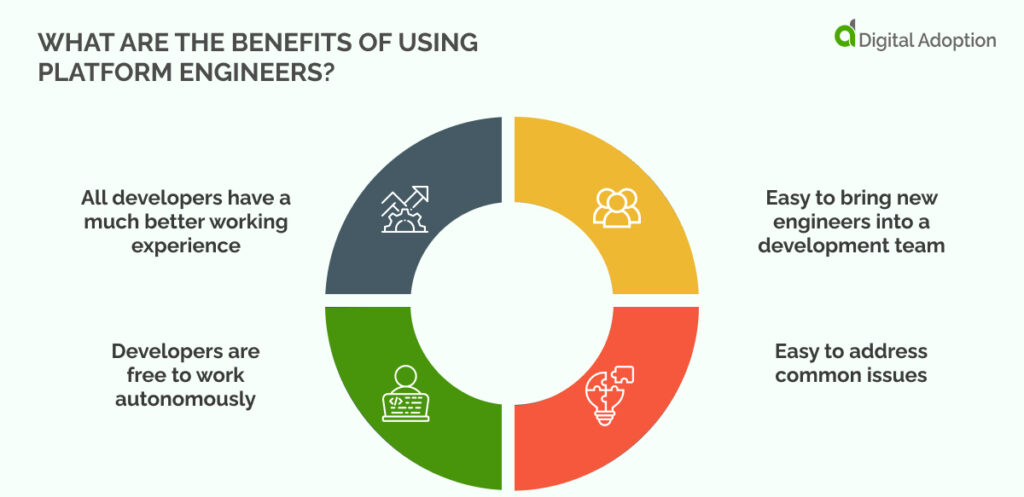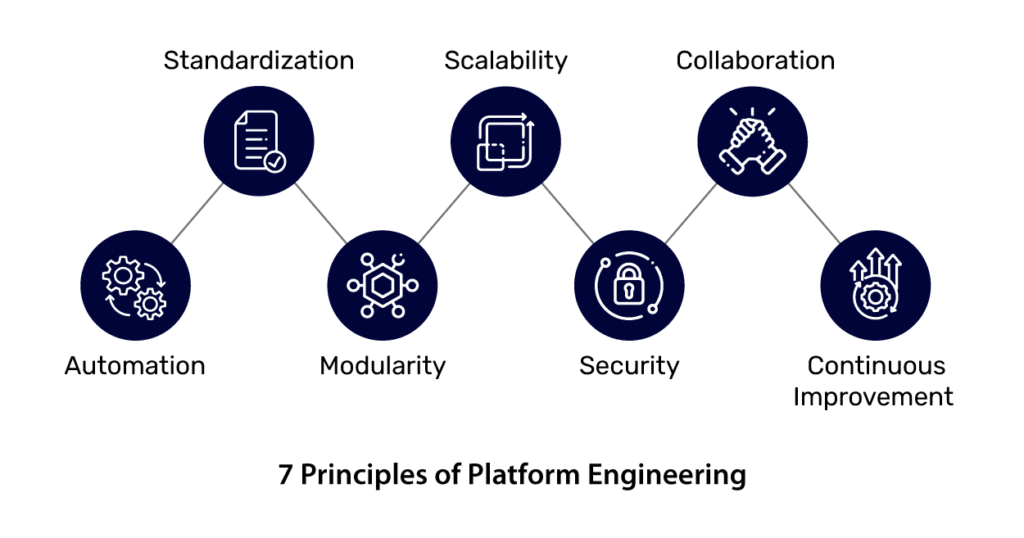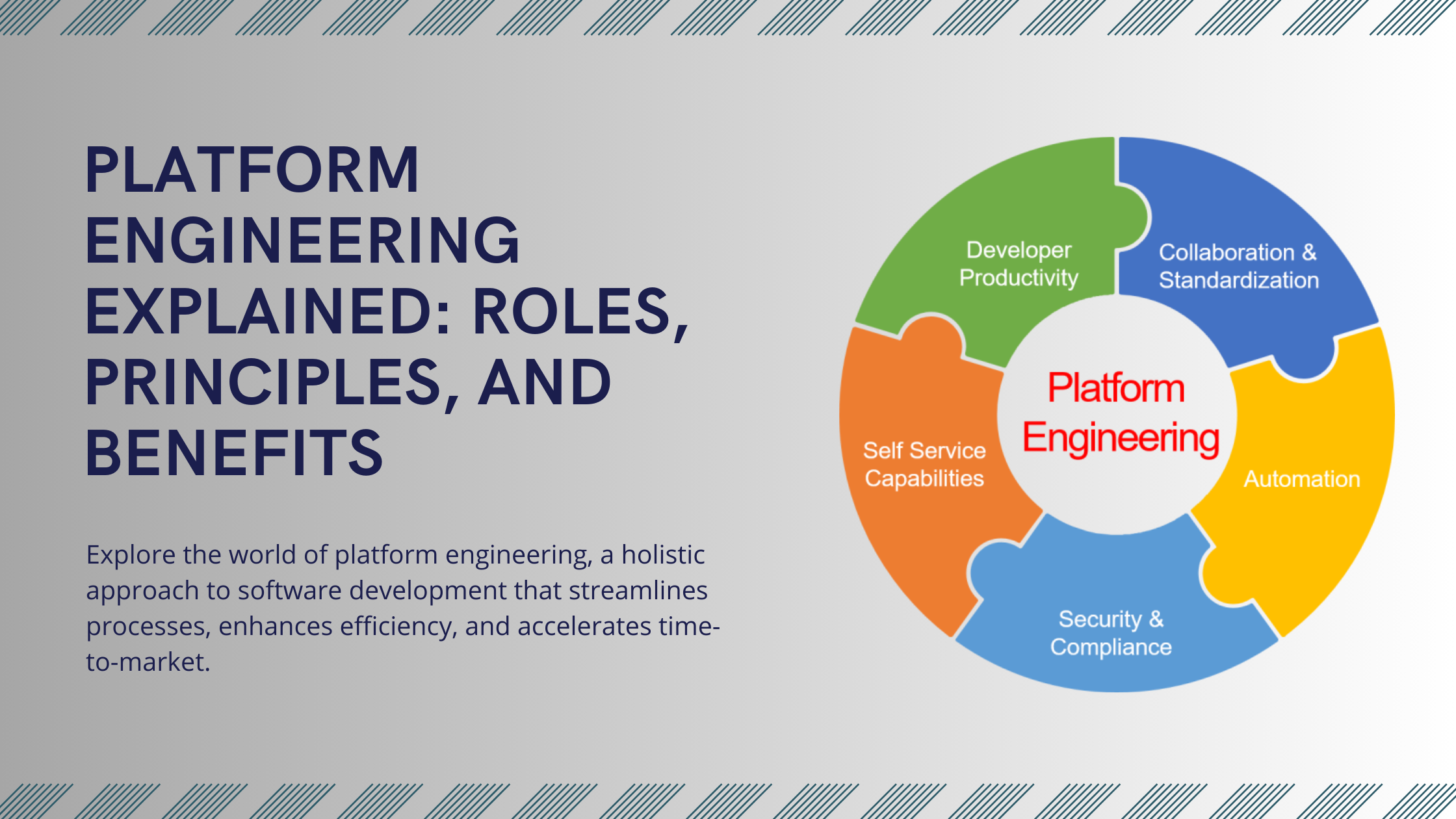Platform Engineering
(2025-09-05T11:27.869Z)
Perplexity Query
(2025-09-05T11:27
.869Z)
Question:
Write a comprehensive one-page article about "Platform Engineering".
Platform Engineering: Powering Modern Software Delivery
======================================================
Introduction
Platform engineering is the discipline of designing, building, and maintaining internal development platforms that streamline and standardize software delivery workflows for engineering teams.
[u2q5d6]
As digital businesses seek faster innovation and higher reliability, platform engineering enables organizations to accelerate software delivery while improving consistency and scalability.
[3gxiic]
This approach is gaining significance as companies face increasing pressure to deliver high-quality software rapidly and securely in complex, distributed technology environments.
[3gxiic]

Main Content
Platform Engineering organizes infrastructure, tools, and workflows into a coherent, self-service platform that empowers developers to focus primarily on building applications rather than maintaining environments or wrangling deployment pipelines.
[u2q5d6]
For example, an e-commerce company might build a platform offering automated provisioning of test environments, built-in monitoring, secure deployments, and easy integration with payment services. Developers can self-serve resources, test new features, and deploy updates quickly—without waiting on separate DevOps or operations teams.
[3gxiic]
[u2q5d6]
Benefits are numerous and well-documented:
- Cost savings and efficient operations: Automating infrastructure management and centralizing resources drive down operating costs and optimize resource utilization. [yqnv0t]
Use cases are diverse:
- Financial services firms use platform engineering to ensure regulatory compliance and automate security policy enforcement across apps. [yqnv0t]
- SaaS providers leverage platforms for scalable customer onboarding and streamlined operations.
- Healthcare organizations benefit from standardized pipelines that ensure privacy, compliance, and rapid iteration.
There are, however, challenges. Building and maintaining a platform requires a strong understanding of organizational needs and careful balancing between developer flexibility and standardization.
[qmim7l]
Without thoughtful design, platforms can become too opinionated or insufficiently flexible, frustrating users rather than helping them. Investment in skills, organizational culture, and ongoing improvement is necessary for long-term success.
[qmim7l]

Current State and Trends
Platform engineering is rapidly moving from an emerging trend to a mainstream practice, especially among organizations adopting cloud-native and DevOps methodologies.
[u2q5d6]
According to industry surveys, a vast majority of tech leaders believe platform engineering is critical for aligning development, operations, and security efforts.
[qmim7l]
Companies like Netflix, Spotify, and Google have established mature internal platform teams; meanwhile, vendors offer out-of-the-box solutions or frameworks to help smaller firms start the journey.
Key trends include the proliferation of internal developer portals, service catalogs, infrastructure-as-code (IaC) tools, and “platform as a product” mindsets, where platforms are continuously improved with developer feedback. Technologies like Kubernetes, Terraform, and Backstage are often foundational tools in the platform engineering toolkit.

Future Outlook
The future of platform engineering points toward even greater automation and intelligence, with platforms that adapt dynamically to developer needs and business goals. Advances in AI-driven operations, policy-as-code, and observability will make platforms more reliable, secure, and easy to use. As even non-technical teams require digital solutions, platform engineering practices are likely to expand beyond IT, becoming central to how entire organizations deliver value in the digital age.
Conclusion
Platform engineering is transforming how businesses build and operate software by empowering developers, streamlining operations, and accelerating innovation.
[3gxiic]
[8nkkf5]
[qmim7l]
[u2q5d6]
As demands for speed and reliability grow, organizations that invest in robust platform engineering will be best positioned to deliver high-impact digital products in the years ahead.
Citations
[3gxiic] 2025, Aug 29. What is Platform Engineering? | IBM. Published: 2024-06-12 | Updated: 2025-08-29
[8nkkf5] 2025, Sep 03. The benefits and pitfalls of platform engineering - Port IO. Published: 2024-08-06 | Updated: 2025-09-03
[yqnv0t] 2025, Sep 04. The 10 benefits of platform engineering - Calibo. Published: 2024-06-20 | Updated: 2025-09-04
[qmim7l] 2025, Sep 05. What is Platform Engineering? Platform Engineering Definition with .... Published: 2023-01-16 | Updated: 2025-09-05
[u2q5d6] 2025, Sep 05. Platform Engineering Explained: The Ultimate Guide to ... - Bunnyshell. Published: 2024-09-30 | Updated: 2025-09-05
